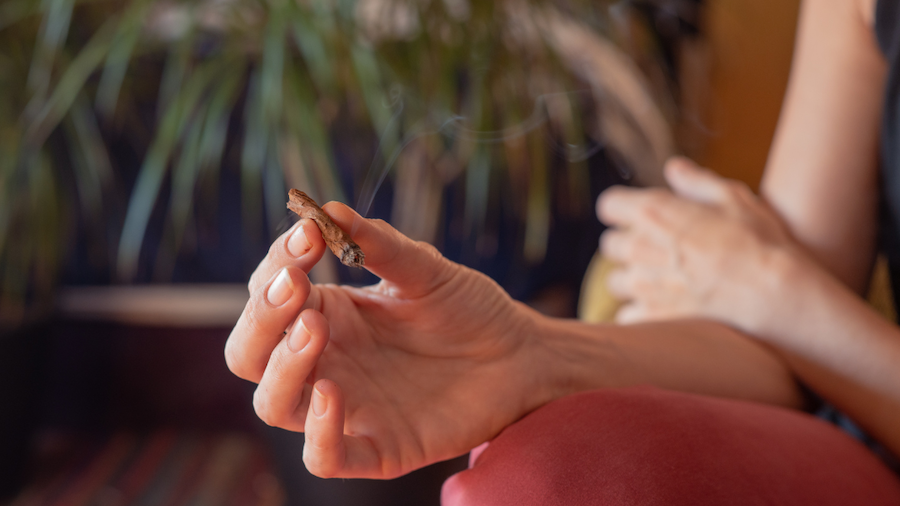It takes virtually zero leaps of logic to connect between cannabis and mental health.
First and foremost, cannabis contains THC, which alters your mind state with its psychoactive effects. When a substance changes what’s happening in your brain, it’s only natural to wonder the impact it can have on mental health.
Moreover, cannabis and mental health share a distinctive commonality. Until recently, both have been subjected to stigmatization of the highest order.
Only in the past decade has the broader public been more open to legal cannabis usage and honest discussions about mental health.
Furthermore, word from the grapevine–consisting of connoisseurs, researchers, and experts–suggests there are mental health benefits to consuming cannabis. Phasal Dispensary will examine this topic in the following article, as we aim to inform you–our loyal audience–about all things cannabis.
We want you to get the most out of our products, and the ensuing deep dive will enable you to do just that.

Scientific Studies and Research
Research indeed suggests the relationship between cannabis and mental health can be beneficial. Still, it’d be irresponsible to ignore that the connection is a double-edged sword.
While many studies speak to the mental-health-boosting characteristics of cannabis, its usage–more specifically, chronic or over-usage–could adversely impact mental health.
A few factors can sway the side on which the cannabis-mental health cookie crumbles. Generally, experimenting in moderation with various strains/doses and working alongside a doctor/psychiatrist will yield the best results.
One thing to consider is how it can take months of trial and error for a patient to find the right antidepressant or anti-anxiety med. While it’s not an apples-to-apples comparison, trial and error with the help of medical professionals will better guide you toward the cannabis strain and dosage best suited to your mental health symptoms.
Remember, too, that not all cannabis experiences are the same. You might have a heightened bout of anxiety with a particularly potent strain while another, more gentle bud evens you out.
Potential Drawbacks of Cannabis and Mental Health
We’re more of a “bad news before good news” company at Phasal. We firmly believe cannabis’s positives vastly outweigh the negatives and don’t want to leave things on a sour note.
Plus, we deem it crucial to list potential pitfalls to offer guidelines and precautions to help you enjoy the benefits of cannabis and evade the negatives.
Cannabis–when consumed too frequently–can trigger increased cases of psychosis and schizophrenia [1].
The study to which we’re referring, “Clearing the Smoke on Cannabis: Regular Use And Mental Health,” also cites the following mental health setbacks of chronic cannabis usage:
- Chronic cannabis use is twice as prevalent (if not more) in people with mental disorders (e.g., bipolar disorder, anxiety, depression, and PTSD).
- There’s a heightened risk of having a suicidal episode when using cannabis.
- Those with anxiety disorders are likelier to abuse cannabis and develop addictive disorders.
- Cannabis usage for patients with PTSD is linked to poorer mental health outcomes and addiction problems.
The Benefits Cannabis Can Have On Mental Health
A research paper titled “Effects of Marijuana On Mental Health: Anxiety Disorder” examines the relationship cannabis can have with mental illnesses and disorders.
It makes the following points [2]:
- A growing number of people with social anxiety disorders rely on cannabis as a coping tool.
- At lower doses, THC can decrease anxiety.
- Cannabis with higher CBD amounts appears to reduce anxiety more than most forms.
It’s worth noting that even this generally positive study points out the connection cannabis can have with substance abuse issues.
Another study called “Therapeutic Benefits Of Cannabis: A Patient Survey” cites how medicinal doses can help with pain management and sleep issues. As such, they aid with depression, offsetting the debilitating, mood-sapping effects those more physical maladies can have on everyday living [3].
It’s also worth noting how some anecdotal evidence suggests cannabis can help people with ADHD relax and focus better [4].
Disclaimer
None of this section is meant to be medical advice. We stress the undeniable value of speaking with mental health professionals about the impact–negative or positive–cannabis can have on your mental health.
The one thing that seems undebatable is how moderate, responsible usage is healthier than chronic cannabis consumption. Ensure you consume cannabis with an always-present air of caution.
The Endocannabinoid System (ECS) And Mental Health
A diverse network of densely packed cellular receptors and chemical signals throughout our bodies and brains comprises the endocannabinoid system (ECS) [5].
The number of CB1 (or cannabinoid) receptors in our brains exceeds other receptor types, essentially functioning as traffic cops, regulating other neurotransmitters’ activity levels. By providing immediate feedback, the CB1 receptors adjust activities situationally, whether temperature, alertness, or hunger.
Our bodies produce endocannabinoid molecules to stimulate receptors. These are similar in structure to cannabis.
Most relevant to this article is that the endocannabinoid system has proven crucial in moderating steady emotions [6].
Since THC binds seamlessly with the ECS, the ECS can directly impact mind state, emotions, and mental health whenever it’s flooded with THC-derived cannabinoids.
Community Support
Breaking mental health stigmas and helping those suffering relies heavily on community support.
The less mental health is treated as something to shove under the rug, and the more open conversations are promoted, the more people suffering will feel seen, heard, and unisolated.
Cannabis can’t work miracles. Healthy, supportive living environments are the most potent tool in combatting widespread mental illness.
Of course, some people’s mental illness might require more rigorous professional help–but every bit of compassion and kindness from one’s surrounding community helps.
Phasal is proud to be part of the NJ community and do our part in promoting fruitful, illuminating conversations about mental health. Our customers and fellow residents matter to us, and we want to do everything in our power to combat stigmas surrounding emotional well-being and cannabis’s role in treatments.
Conclusion
Mental health and cannabis are intrinsically related. While there are risks in over-relying on cannabis to treat related symptoms and disorders, the potential benefits involved with moderate usage can’t be disputed. Too many people cite improvements to their mental health to ignore.
Phasal has a vast range of products (e.g., CBD dominant strains, edibles, and tinctures) that can promote more robust, resilient mental health.
Learn more about our product offerings by contacting us with any questions. We’re happy to provide answers to any queries about cannabis strains with reported mental health benefits.
